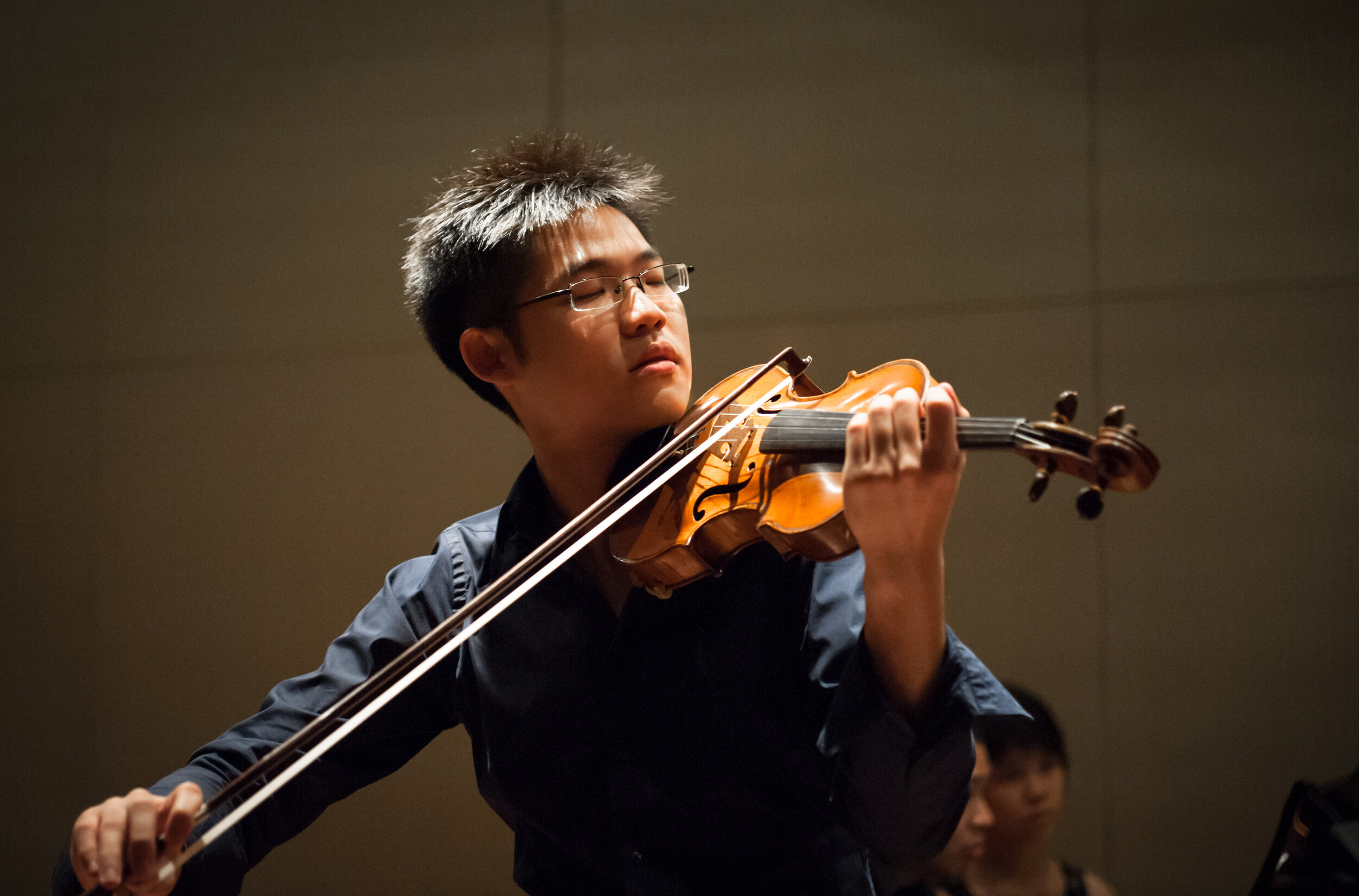by Peter Feher

Spearheading the experiment was violinist Alan Choo, a regular standout performer with Apollo’s Fire and, as of this season, the ensemble’s Assistant Artistic Director. With “Muse of Fire,” the first program he’s led here entirely solo, Choo played up the idea of coming to the fore. He chose a handful of small-scale works by lesser-known composers of the 17th century and then let much of this music speak brilliantly for itself.
Heinrich Ignaz Franz Biber’s Rosary Sonatas are the perfect vehicle for a violinist looking to make a splash. Choo has been putting all his energy into polishing these pieces, recording the complete set for an album he’s headlining with Apollo’s Fire (due out next year) and highlighting two of the fifteen sonatas here. The mastery and deliberation that come from knowing a score so well shone through in his performance on Friday, February 3 at St. Paul’s Episcopal Church in Cleveland Heights.
From the virtuoso introduction of the Sonata No. 14, “The Assumption of Mary,” to the slow build of the Sonata No. 2, “The Presentation of Jesus in the Temple,” it wasn’t only Choo’s solo playing that impressed. An assortment of accompanying instruments (lutes, cello, harpsichord, and organ) brought liveliness and cohesion to the continuo part and showed that the best backing band plays out as equals.
The instrumentalists were appropriately supportive and subdued for Dieterich Buxtehude’s cantata Wo ist doch mein Freund geblieben? (“Where has my friend gone?”). Balanced ensemble playing let soprano Andréa Walker and baritone Edward Vogel sweetly unfold the rhetorical turn of the composition, which sounds at first like a lovers’ duet but reveals itself to be a dialogue between Jesus Christ and a follower.
Each singer explored a contrasting sacred character in the program’s first half. Walker found the right mix of beauty and restraint for Franz Tunder’s Ach Herr, lass deine lieben Engelein (“Oh Lord, let your dear little angels”). And Vogel handled the demanding and ornate vocal writing of Nicolaus Bruhns’ De profundis clamavi (“Out of the deep have I called”) with aplomb, sometimes leading a sudden shift in tempo himself and sometimes coordinating these tricky transitions with Choo.
When a soloist wasn’t at the front of the ensemble, the music could occasionally lack a sense of unity and direction. Choo and fellow violinist Emi Tanabe played off each other like dueling fiddlers in a pair of pieces — Biber’s Ciaccona from Harmonia artificioso No. 5 in g and Johann Heinrich Schmelzer’s Die Fechtschule (“The fencing school”) — that left the rest of the group in the dust. And a straightforward chamber work like Johann Rosenmüller’s Sonata settima a 4 in d could have benefitted from stronger leadership and more collaboration all around. But of course, it takes time for any ensemble to find its footing under a different director.
Published on ClevelandClassical.com February 14, 2023.
Click Here for a printable copy of this article


